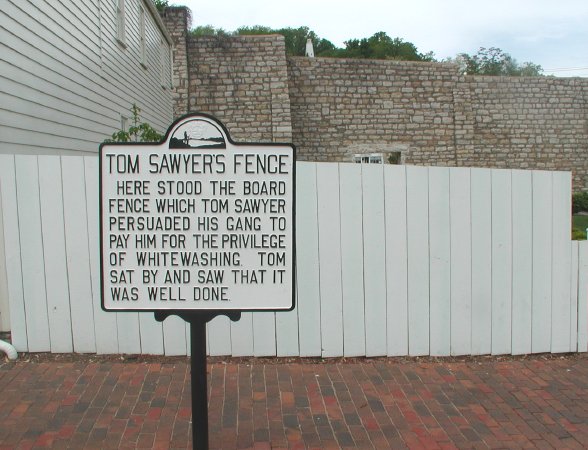The administration's Quadrennial Energy Review "...recommended that the Department of Energy (DOE) conduct a national review of transmission plans and assess barriers and incentives to their implementation." The DOE tasked its Lawrence Berkeley National Laboratory (LBNL) to prepare a report to support its response to this recommendation. Lawrence Berkeley is an expert on the physical sciences. Maybe the idea was to apply physical "science" to administrative and social problems? But it doesn't work. There's nothing scientific about transmission planning, permitting and siting. In fact, the biggest problem with this issue is that industry and government has been attempting to make it purely scientific for years and have failed miserably because human factors not considered in science keep derailing the best laid plans of business and government. DOE might as well have sent a carpenter to install plumbing.
But LBNL bravely soldiered on. It "selected" nine recent transmission projects for its study. No mention of how these projects were selected. It's almost like they cherry picked a representative sample based on secretive criteria. Who selected these nine transmission projects, and why? I'd sort of expect something at least equivalent to the standards applied to elementary school science fair projects from LBNL. Is this how they set up all their experiments? Any teacher can tell you that the subjects of your case study can drastically affect your conclusions when not selected scientifically.
LBNL selected a mix of both failed and successful merchant and regionally cost-allocated transmission projects. But it failed to delve very far into how the merchant vs. regionally allocated factor alone affected the projects' success. A regionally cost-allocated project enjoys a rebuttable presumption of need during the permitting process, while a merchant project relies on committed customers to demonstrate need. Beyond this broad statement, no attention was paid to how lack of committed customers for merchant projects may have played into failure in the state permitting process.
LBNL used four criteria to evaluate its selected projects.
1. The State Approval process. States have authority for siting and permitting transmission projects.
2. NEPA Compliance. Projects sited on federal land must go through the administrative quagmire of the NEPA process.
3. Public and Stakeholder Involvement. Why isn't "the public" a stakeholder?
4. Economic and Commercial Circumstances. Transmission project economics is always changing. When combined with a long approval process, transmission economics almost always die a slow, painful death.
So, let's talk about some of the samples.
The Champlain Hudson Power Express. This project has sailed through permitting. LBNL thinks this was due to a "proactive" effort on the part of its developers to negotiate with stakeholders during permitting. The real secret here is that this project is routed entirely underground along road and railway rights of way. Because it wasn't routed through or visible from private property, it did not inspire any opposition. Since there was no public opposition, it was not delayed and did not have to waste money on third party advocacy and propaganda efforts to create an aura of artificial support. This is the most important conclusion revealed in LBNL's study, but sadly LBNL failed to recognize it.
The Potomac-Appalachian Transmission Highline (PATH). Talk about stating the obvious:
The PATH project is an example of a project that faced significant public opposition.
The Grain Belt Express project. Another example of significant public opposition driving the state approval process.
As part of its analysis of the public interest, the PSC acknowledged the substantial opposition to the project expressed by business owners, farmers, and individual landowners across whose properties the project was proposed to cross. The Missouri PSC noted, “In this case, the evidence shows that any actual benefits to the general public from the Project are outweighed by the burdens on affected landowners.”
The Susquehanna Roseland project. LBNL seems to think that "mitigation," aka bribes, paid to the National Park Service cost the developer money.
The National Park Service, for example, required significant and expensive mitigation measures from the developers for the Susquehanna-Roseland project in order to gain its approval for completion of the portion of the line that crossed the Delaware Water Gap National Recreation Area, which it is mandated to protect.
So, what were LBNL's conclusions?
The development of a transmission project is a commercial venture involving investors who are prepared to incur significant, yet ultimately limited, up-front development costs in return for the opportunity to earn future profits from the sale of transmission services and/or a regulated return on invested capital. Adopting a developer’s perspective enables us to look at the factors reviewed in this report as ones that affect either the cost or time required to construct a transmission project. The extent to which these factors represent barriers to the implementation of transmission projects is thus an assessment of whether these costs or time requirements are avoidable or necessary.
There are documented examples of project developers who have sought to reduce these costs and associated time requirements through up-front information sharing and joint (and early) development of mitigation approaches (including abandonment of early proposed and development of new routing options). The success of these activities has hinged largely on the extent to which they lead to meaningful engagement and tangible commitments to address public concerns over line routing.
The state-centric public-interest issue that arises most vividly for multi-state transmission projects involves the so-called “fly-over” states. These states are situated between the states that are the starting and ending points for a long-distance transmission project. The initial decisions by the Missouri PSC to deny the CPCN application for Grain Belt Express exemplify this issue. The public-interest issue raised by states in the middle is that, at bottom, they are being asked to bear significant portions of the cost or adverse impacts of a project, yet they do not believe they are being provided with sufficient opportunities to share in the benefits of the project.
The need to satisfy a middle state’s public-interest requirements is a classic example of what economists describe as the role and importance of “side payments.” In this instance, the gains from trade must be sufficient to cover side payments to affected parties who have standing but who would not otherwise benefit from the transaction. Thus, the situation faced by developers, such as those for the Grain Belt Express project, is tangibly and fundamentally (but not solely) commercial in nature. Notably, as discussed, the developers for Grain Belt Express recently reached an agreement to sell power from the project to an association of municipal utilities in Missouri and, based on this agreement, plan to re-file their request for state regulatory approval. It remains to be seen whether the fact of a Missouri entity signing an agreement that could be seen as demonstrating the public-interest value of the project in Missouri will result in the Missouri PSC approving the project on its third attempt in the state.
LBNL also concluded that the federal government is a circus without a ringmaster and the NEPA process is FUBAR.
Wrapping all its conclusions together, LBNL comes up with this:
Developing a transmission project involves simultaneously managing two categories of commercial risk. One is the risk associated with securing the capital necessary to build the project. Eto (2016) focused on one example of capital risk: that associated with seeking regional cost allocation. The other category encompasses risks associated with the actual construction of a project. This report is focused on a key subset of these project-construction risks: the cost of satisfying the due process requirements of state and federal agencies involved in permitting and siting lines, which is often increased when there is organized public opposition to the project. These are necessary costs associated with transmission-line construction. Some can made more manageable through proactive actions by developers. Still others can be made more manageable through the actions of federal and state agencies to enhance the efficiency and accountability of their processes. Thus, while the project review process can be slow and add costs to project development, on the whole transmission lines are being built. Moreover, there are promising signs that both groups are taking actions to improve the processes, both in terms of their duration and the quality of the decisions that get made. We found examples of merchant transmission projects successfully gaining needed approvals and being constructed. Their experiences, in particular, suggest that if the economics of potential projects are sound, someone will find a way to build them.
As far as the inefficiency of the federal government, can't help you there. Maybe another report on how to reform the federal government to make it work for the people instead of the special interests? Maybe the special interests can fund it next time around.


 RSS Feed
RSS Feed